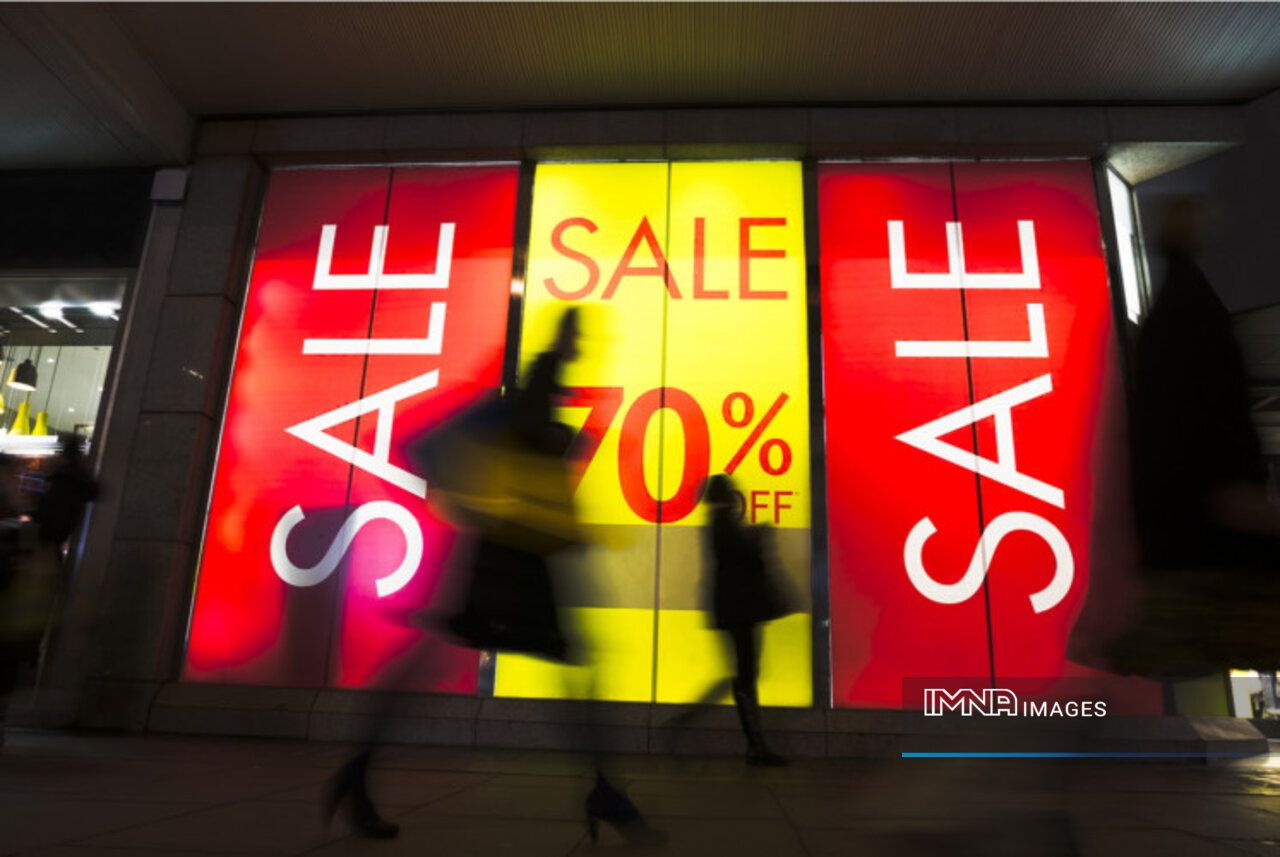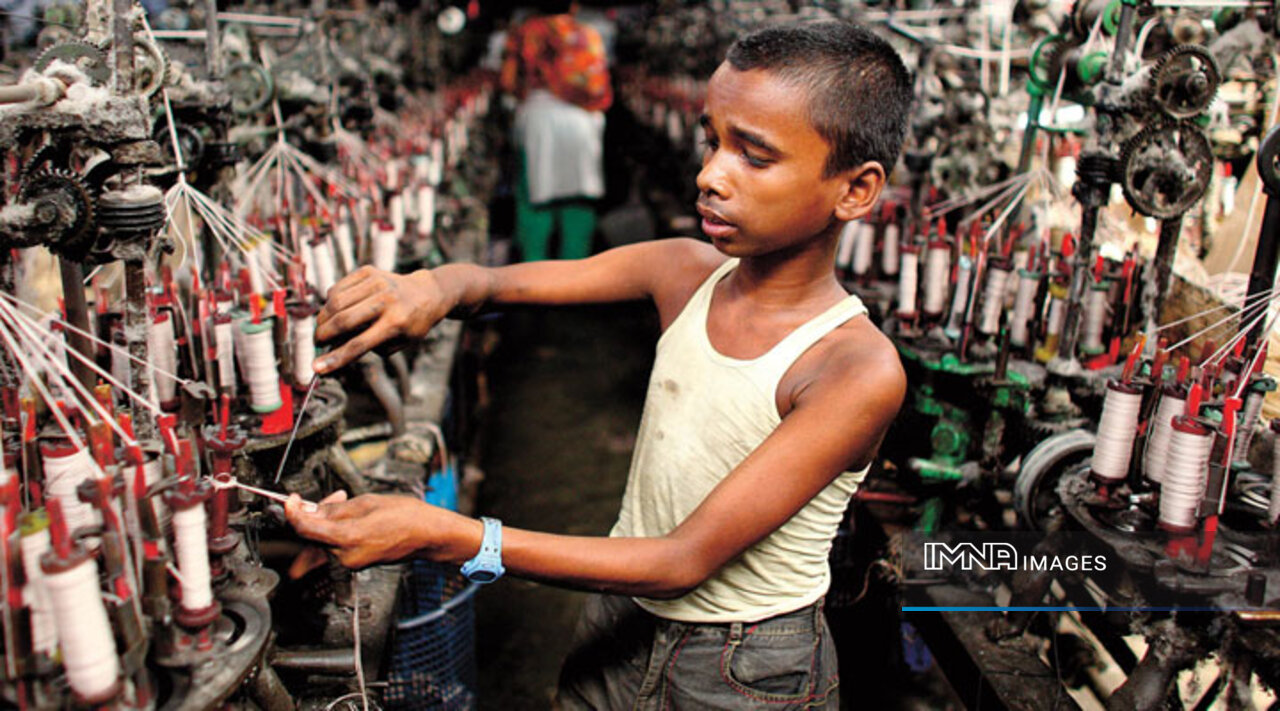Iran (IMNA) - With relentless reminders urging consumers to seize the early bargains and brace themselves for substantial discounts, the frenzy surrounding this event has reached new heights in recent weeks.
However, concerns have begun to emerge regarding the detrimental impact of this unconscious shopping spree on the environment, society, and the welfare of animals. Increasingly, individuals are questioning the ethics behind participating in events like Black Friday and even boycotting them altogether.
Even when renowned brands and organizations attempt to portray Black Friday as a "sustainable" affair by promoting "eco-friendly" deals, there is a palpable sense of skepticism. Many perceive these efforts as nothing more than greenwashing, with the rampant overconsumption that occurs during this period being inherently unsustainable.
In an effort to shed light on the environmental and social consequences of Black Friday, it is necessary to take a step back and delve into its origins. What exactly is Black Friday? How did it come to be? What are its inherent flaws? And crucially, how can we, as conscientious consumers, resist succumbing to the prevailing tide?
By pausing to reflect on these questions before engaging in shopping activities, we can empower ourselves to make informed choices and actively combat the negative repercussions associated with Black Friday.

The Origins and Global Impact of Black Friday: From Philadelphia Streets to Worldwide Retail Phenomenon
The origins of the term "Black Friday" have been traced back to the bustling streets of Philadelphia in the 1960s. While some may associate the word "black" with financial profit, it was actually coined by traffic police officers to describe the chaotic scenes that unfolded on the Friday following Thanksgiving.
During this time, large crowds flocked to stores, causing traffic jams and overcrowded sidewalks as they embarked on their Christmas shopping spree. Over the years, retailers have embraced Black Friday and turned it into a highly anticipated event by offering exclusive deals and discounts to attract even larger crowds.
Originally an unofficial American holiday, Black Friday has now transcended borders and become a global phenomenon both in-store and online. With its tendrils reaching far and wide, this annual shopping extravaganza has captivated consumers around the world, making it a significant date on the retail calendar.
Black Friday Exacerbates Fashion Industry's Environmental Impact
In the realm of fashion, particularly fast fashion, which is already notorious for its environmental pollution and exploitative practices, Black Friday intensifies these issues as increasing numbers of individuals are enticed to splurge their hard-earned money on irresistible bargains.
The surge in global consumer spending inevitably leads to a surge in manufacturing and shipping of products worldwide, resulting in a substantial increase in Black Friday's carbon footprint.
The sheer volume of transactions during this shopping extravaganza contributes to higher emissions, greater waste generation, and an increased number of trucks dispatched to meet the escalating demand. Transportation, being a major contributor to environmental degradation due to carbon emissions caused by human activities, plays a pivotal role in exacerbating the situation. According to a report from the European Parliament, experts estimate that by 2050, the environmental impact of Black Friday could potentially account for as much as a 17% rise in carbon emissions.
However, the detrimental effects of Black Friday on the environment do not cease once the purchased products arrive at our doorsteps. On the contrary, Black Friday perpetuates overconsumption by pushing consumerism to its extreme, compelling us to acquire unnecessary, unwanted, and cheap goods made from unsustainable materials of poor quality. Regrettably, when we eventually realize that the alluring deal we secured is nothing more than a flimsy facade, most of us simply discard it, adding to the mounting waste problem.

The Social Impact of Black Friday: Exploitation, Stress, and Consumerism
In the world of Black Friday, the consequences go beyond the mere purchase of discounted goods. This shopping extravaganza not only affects our planet but also has far-reaching implications for everyone involved, particularly the workers behind the scenes.
One significant aspect is the production process itself, which often involves outsourcing labor to countries where brands can get away with paying meager wages. This practice denies workers access to a living wage and safe working conditions, effectively trapping them in an inhumane cycle of poverty. Unfortunately, the increased profits generated from the sale of even cheaper goods during Black Friday rarely find their way into the pockets of these workers.
Furthermore, there are the workers responsible for packaging, shipping, and delivering the products. These individuals endure immense stress during this time of the year, as they work tirelessly for long hours to meet the overwhelming demand.
Black Friday also leaves an impact on us as consumers. It capitalizes on the notion that our value in this capitalist society is determined by the possessions we accumulate. The belief is that by purchasing more items, we will feel better—more appreciated, loved, respected, and so on.
However, it is essential to recognize that the deals and discounts offered on Black Friday are not primarily created with shoppers in mind. Instead, they serve to bolster companies' financial statements and line the wallets of CEOs. Black Friday is just one example of how big brands exploit the working class to maximize their profits.

A Complex Reality of Consumerism and Necessity
The phenomenon of Black Friday shopping has been widely discussed, with contrasting opinions emerging regarding its implications. While videos of massive crowds filling shopping malls on this annual event have gone viral, showcasing individuals frantically loading their carts, it is crucial to acknowledge that not everyone's experience aligns with this narrative. For some individuals, Black Friday presents a unique opportunity to acquire essential items they genuinely need. Singling out Black Friday shoppers is not constructive and can perpetuate classism, racism, and sexism.
Addressing this multifaceted issue requires a collective effort from each one of us. It is imperative that we take a step back and critically evaluate our consumption habits. We must ask ourselves whether participating in Black Friday is truly necessary, considering the impact it has on our lives and society as a whole. By reflecting on our purchasing decisions, we can contribute towards a more mindful and sustainable approach to Black Friday shopping.



Your Comment